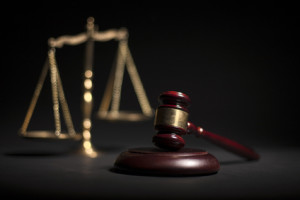 UPDATE: SB 709 passed in the Senate on Thursday, April 16 and then passed in the House on Thursday, April 30.
UPDATE: SB 709 passed in the Senate on Thursday, April 16 and then passed in the House on Thursday, April 30.
Texas legislators have once again taken aim at the long-standing contested case hearing process that provides opportunity for public participation in ensuring an environmental permit is protective of public health and the environment.
Senate Bill 709 by Senator Fraser and its companion House Bill 1865 by Representative Morrison reduce public participation and rights in a Texas Commission on Environmental Quality (TCEQ) contested case hearing for an environmental permit application.
The changes to the state’s permitting process proposed in SB 709 reduce the rights of Texans to participate effectively in the permitting process on the basis that the contested case process has become burdensome to the state’s ability to competitively attract businesses due to the uncertainty created by the threat of a lengthy permit process.
However, the truth is that there are just not that many permit applications that are affected by the contested case hearing process. In 2014, there were 1,960 applications received by TCEQ. Of those applications, only 10 were referred to the State Office of Administrative Hearings – that’s only one half of one percent of applications received in that calendar year. The other 99.5% of permit applications to the TCEQ go uncontested and are processed and issued in time-frames similar to or even faster than our neighboring states that we compete closest with for business.
If this bill is enacted into law, the contested case process that has a track record of improving permits and protecting the environment from the biggest and longest lasting environmentally hazardous projects, would be substantially amended.
First, the length of any hearing would be limited to 180 days without regard to specific needs of parties. This time frame does not allow sufficient time for meaningful discovery, or analysis of the facts removing any discretion by the Administrative Law Judge to grant an extension of time even when such a denial would deprive a party of due process.
These bills would also allow the TCEQ to deny a hearing request based on the merits of the application without allowing an opportunity for discovery, presentation of the evidence, or cross examination. The contested case hearing process was created to provide an affected party a chance to argue against the TCEQ decision in front of an impartial decision maker as part of a sound democratic system.
Further, the bill places the burden of proof on the wrong party by shifting it from the applicant to the protestant. In this legislation, the draft permit itself, is evidence that is presumed to be true that the permit meets all federal and state requirements declaring it protective of public health and the environment. However, this is often not the case of draft permits and if this bill passes the burden to find fault in a supposedly perfect draft permit shifts to the protestant. Protestants are often individuals or small organizations who often do not have the resources nor expertise to collect the necessary evidence to bring a strong a case against a large cooperation.
The bottom line is that the burden of proof should remain on the party seeking to change the status quo by filing permit. If an applicant wants to discharge waste into the air, water or land, it is their responsibility to show that they are using the best technology available, so that the activity can be done safely, rather than forcing an affected member of the public to prove otherwise.
Although most permits don’t go through the contested case hearing process, those that do are often the most significant permits that would allow the most pollution. In those cases, Texans should have the right to protect their health, land and livelihoods.
The contested case hearing process reflects longstanding Texas values of transparent and accountable government, private property rights, and local control. In a state where these values are held sacred it will be interesting to see how legislators handle these bills.
Email your state representative to voice your opposition to HB 1865 and SB 709.



